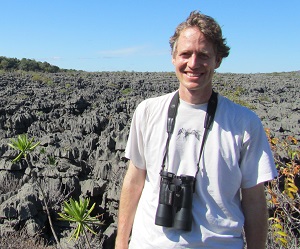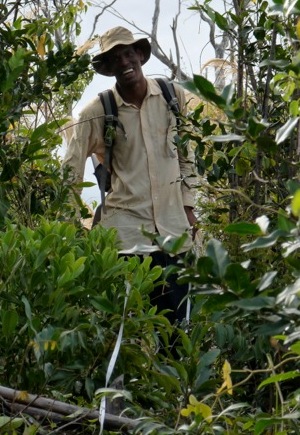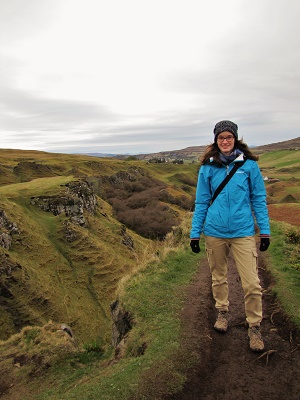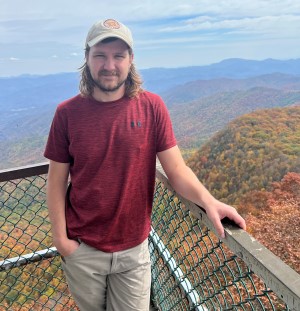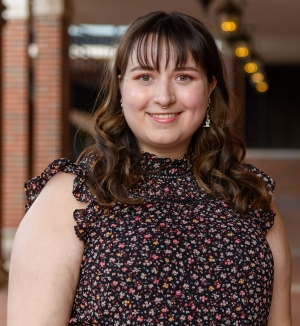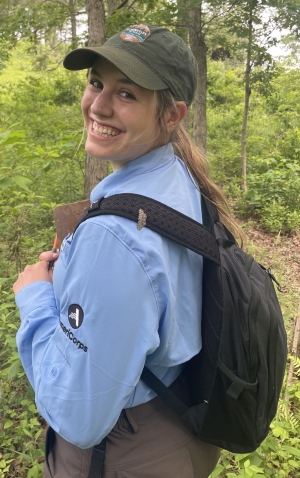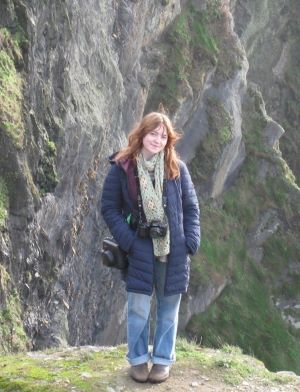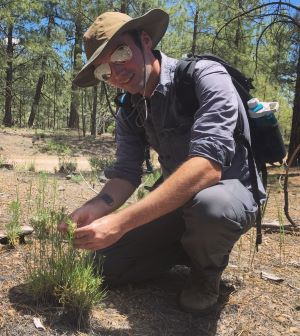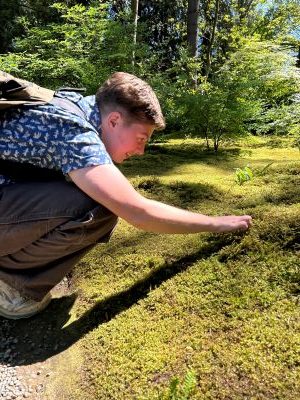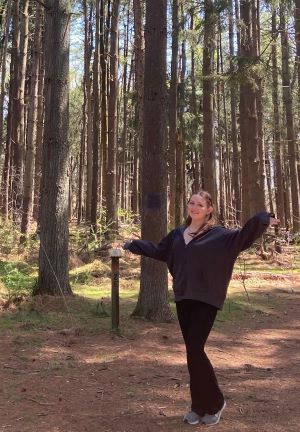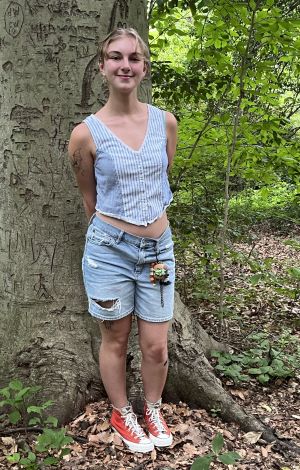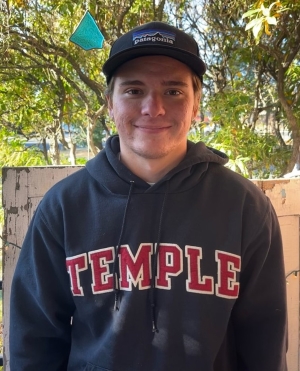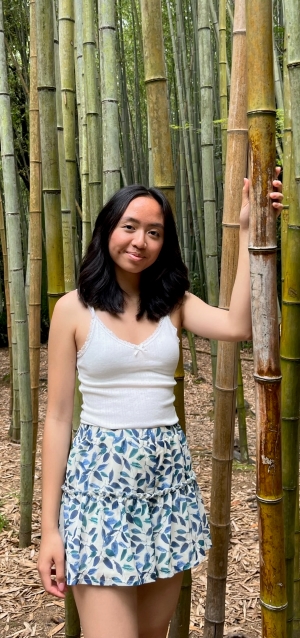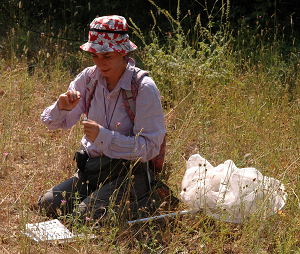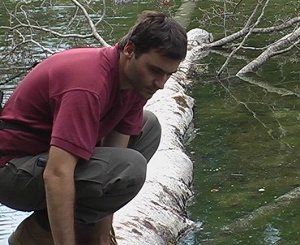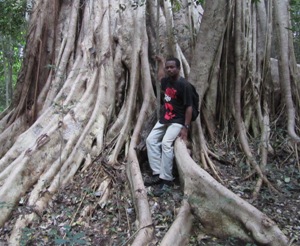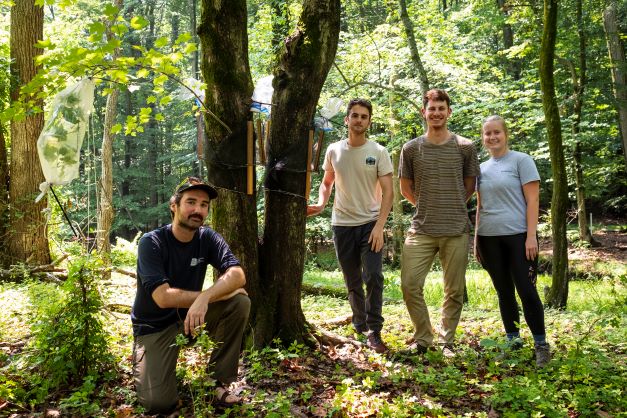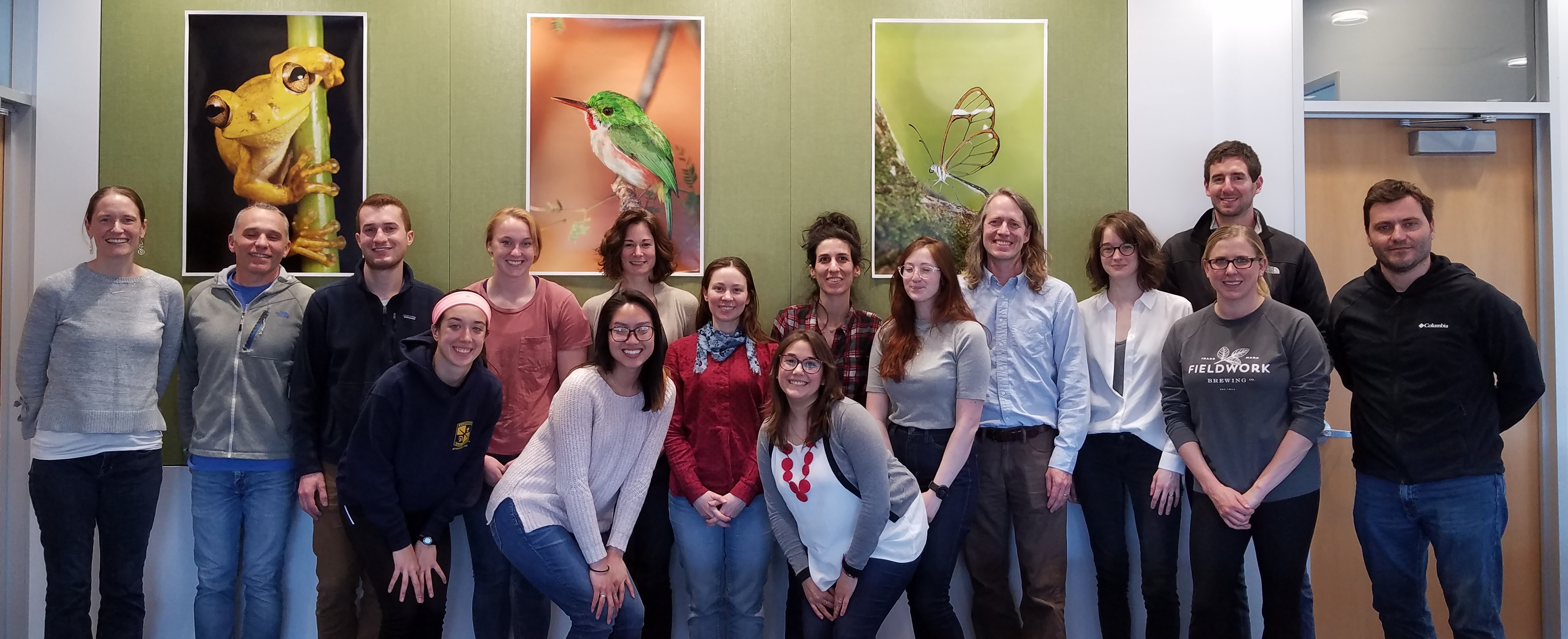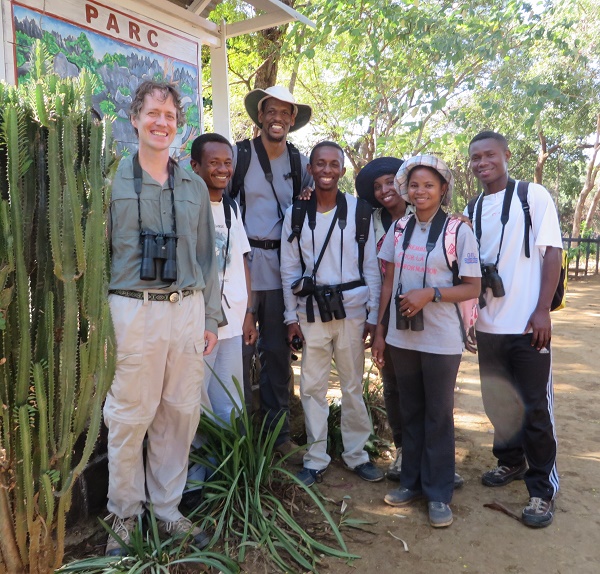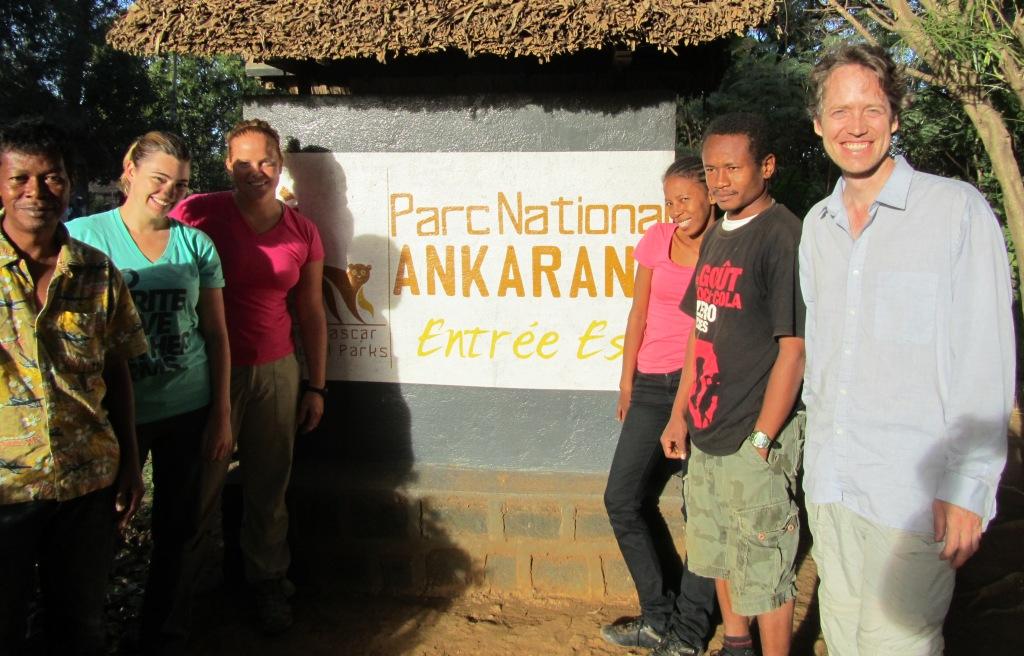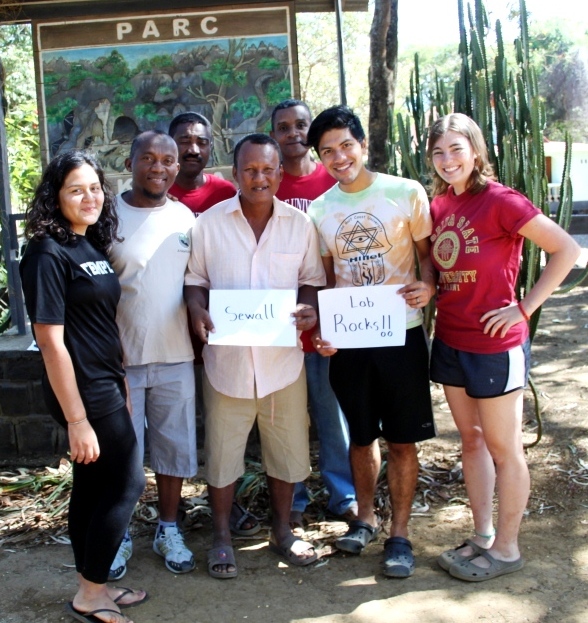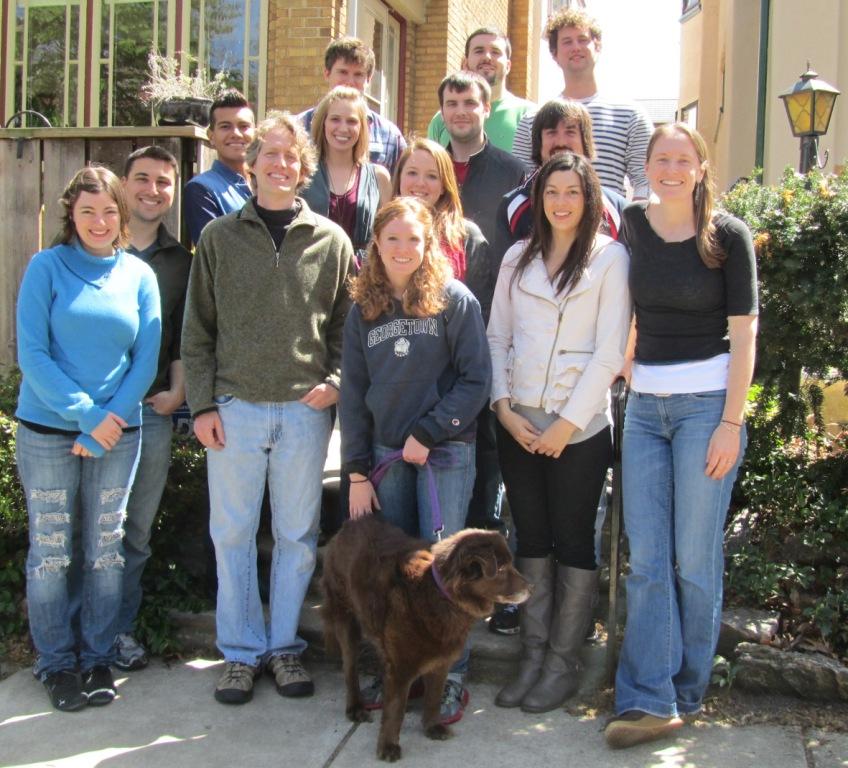Principal Investigator
Dr. Brent Sewall is an Associate Professor in the Department of Biology at Temple University. The goal of his research is to understand and address critical and emerging threats to biodiversity and to develop effective strategies for conservation. Ongoing work focuses on understanding threats to North American hibernating bats caused by the emerging infectious disease known as white-nose syndrome; identifying and addressing critical threats to tropical and temperate biodiversity; and understanding factors underpinning the resilience of ecological communities. His work has focused on cave, forest, and grassland communities in eastern North America and tropical sub-Saharan Africa, including in both intact and human-dominated ecosystems. Dr. Sewall is also the Director of the Temple Ambler Field Station, where he studies forest regeneration from disturbance and supports interdisciplinary training and research in field studies. Dr. Sewall is also providing technical advice on ecology and conservation to the Pennsylvania Mammal Technical Committee and the White-Nose Syndrome Response Team. He has received the American Society of Mammalogists’ William T. Hornaday Award for outstanding contributions to mammal conservation, the U.C. Davis Merton Love Award for best dissertation in ecology and evolution, and Temple University’s William Caldwell Memorial Distinguished Mentoring Award. Previously, Dr. Sewall was a Research Assistant Professor at Temple and a Visiting Assistant Professor of Conservation Biology at the College of William and Mary. Dr. Sewall received a Ph.D. in Ecology from the University of California, Davis, an M.S. in Conservation Biology from the University of Minnesota, and a B.A. from Penn State University.
(click here for recent lab alumni)
Staff Scientist
Dr. Matthew Banks is a Research Assistant Professor in the lab specializing in non-human primate behavioral ecology. Matthew recently received his PhD from Stony Brook University in physical anthropology where he focused his doctoral research on the effects of human activities and naturally-occurring ecological variation on the diurnal primate communities in forest fragments in the extreme north of Madagascar, including patterns of 1) abundance and distribution and 2) species richness at the population-level. He spent over five years conducting research in these isolated habitats and training the first teams of wildlife stewards to staff the newly gazetted 85,000 ha
Andrafiamena-Andavakoera Forest Corridor, a hotspot for the critically endangered Perrier’s sifaka (Propithecus perrieri) and other high priority flora and fauna for conservation, including members of one of Madagascar’s endemic tree families, the Sarcolaenaceae. Since initiating his first research project in the littoral forests of Madagascar in 1997, Matthew has advocated community-based approaches to research and is interested in increasing the network of local research professionals in northern Madagascar where the Sewall Lab is currently studying the mutualistic networks that characterize plant-frugivore interactions at Ankarana National Park. His research interests include investigating the role of herbivores as ecosystem engineers and specifically their role in driving shifts in tree community dynamics in tropical forest ecosystems.
Postdoctoral Researchers
Dr. Marianne Gagnon is broadly interested in understanding how environmental change influences the ecology, behavior, and conservation of wildlife populations. Her postdoctoral research focuses on the ecology and conservation of North American bat species affected by white-nose syndrome, an emerging infectious disease of wildlife. She began her postdoctoral position in the Sewall Lab in early 2022, after having completed her doctorate in the lab. For her dissertation research, she studied the behavioral and ecological aspects of host-pathogen interactions and dynamics in bats affected by white-nose syndrome. Prior to starting her PhD program at Temple University, Marianne obtained her Master’s degree in Wildlife Biology from McGill University where she studied the effects of torpor expression on the behavioral ecology, physiology, and reproductive biology of mammalian hibernators.
Dr. Clayton Traylor
Dr. Clayton Traylor is an entomologist specializing in forest insect ecology. He is broadly interested in understanding the factors linked to insect biodiversity within forested ecosystems, with a particular emphasis on insect responses to changing forest conditions due to invasive species, historic and ongoing land-use change, and altered disturbance regimes. He is also passionate about documenting the natural history of poorly known insect groups. Clayton earned his PhD in Entomology from the University of Georgia in 2024, where he studied the ecology and conservation of saproxylic (i.e., deadwood dependent) beetles. His previous work has investigated the influence of forest age, forest composition, invasive shrubs, and land-use change on communities and populations of saproxylic beetles and bee pollinators. His work has also linked species’ ecological and morphological traits to their dependence on certain forest conditions or tree types. In the Sewall Lab, Clayton is working to better understand what factors enable spotted lanternfly (Lycorma delicatula) invasion success and how this quickly spreading pest may impact native forest plants. In addition, he is working to improve the conservation success of a once widespread but now threatened pollinator, the Eastern Regal Fritillary (Argynnis i. idalia).
Graduate Students
Olivia Aguiar is a Biology PhD student who began her studies at Temple University in Fall of 2024. She received her BSc with Honors in Biology from UMass Dartmouth in 2022 and her MSc in Integrative Biology from Oklahoma State University in 2024. Her research interests include behavioral ecology, disease ecology, and wildlife conservation and management. Currently, she is researching how bat populations in North America have been impacted by White Nose Syndrome and how to mitigate disease impacts. She is the recipient of a National Science Foundation Graduate Research Fellowship and a Temple University Presidential Fellowship.
Gabriela Cano graduated from the University of Notre Dame in the spring of 2024 with a B.S. in Biology and History and in fall of 2024 began her PhD studies in Biology with the Sewall Lab. She will be studying the Eastern Regal Fritillary (Argynnis i. idalia), a rare and threatened butterfly. Gabi’s previous research has focused on a variety of insects, but she has a special interest in (and love for) pollinators. As an undergraduate, she studied the behavioral ecology of bees with the Smith Bee Lab at Auburn University, explored nutrient cycling in the Great Salt Lake with the Belovsky Lab at Notre Dame, and monitored butterflies at Indiana Dunes National Park. She also has a passion for education and outreach that she intends to integrate into her work and research during her PhD. She is currently a Research Assistant at the Temple Ambler Field Station where she has been mentoring interns in their research projects and producing content for social media (@tufieldstation). In her time at Temple, she hopes to explore restoration ecology, resource management, and prescribed fire.
Justin Ryan is a PhD student in the Sewall lab, co-advised by Dr. Amy Freestone. He started his journey as an Owl back in 2019, graduating from Temple in 2023 with a B.S in Environmental Science with a concentration in Applied Ecology. During that time, he discovered the Temple Ambler Field Station and fell in love with community ecology field work, studying the recolonization of novel ephemeral pools by aquatic invertebrates. Fascinated by the remarkable degree of morphological and taxonomic diversity within invertebrate communities, he continues to study them now, albeit in a different system. Justin has always loved the water and been intrigued by the complex processes that shape near-shore marine communities. Combining his interests, he is now focused on understanding invasion dynamics of marine sessile invertebrates. More specifically, he is aiming to identify environmental drivers of invasion success, functional diversity within successful invader species, and how the effects of invasive species on the native community differ across latitude.
Kaitlyn Connors is a master’s student in Biology at Temple University, where she began her graduate studies in the Fall of 2024. Her current research focuses on overwintering of the Regal Fritillary butterfly, specifically the eastern subspecies, aiming to improve conservation strategies as well as identify optimal thermal conditions for larval survival. Kaitlyn earned her Bachelor of Science in Biology from Bridgewater State University in 2024. She gained hands-on experience in wildlife rehabilitation after volunteering at a refuge. Her background includes direct care and release efforts for injured and orphaned squirrels, which sparked an interest in wildlife conservation.
Madlyn Anglin graduated from Temple University in Spring 2025 with a Bachelor of Science in Environmental Science and a minor in Art. She is continuing her studies at Temple as a master’s student in Biology in the Sewall Lab. As an undergraduate, she spent much of her time at the Temple Ambler Field Station, where she developed a love for studying the effects of disturbances on different forest communities. Her projects have explored species of all shapes and sizes, including mosses, amphibians, and seeds. In her most recent position as a Climate Resilience Fellow with Temple’s Office of Sustainability, Madlyn analyzed seed dispersal in a temperate, wind-disturbed forest, comparing patterns to mature tree distributions to better understand forest succession. She hopes to build on this work by examining the role of small mammals in seed dispersal. In the Sewall Lab, her research will center on applied ecological questions in conservation and population biology, with a focus on how anthropogenic disturbance and climate change affect species and their habitats. In the future, she hopes to pursue a career that combines academic research with hands-on conservation strategies to promote human-wildlife coexistence.
Research Technicians
Chris LeClair recently completed his master’s degree (in 2024) and has been research assistant (since 2020) with the Sewall Lab. His Masters thesis research focused on plant community ecology, specifically the recovery of woody plants after a severe forest disturbance from a tornado. He also serves as the lead technician for a project studying Spotted Lanternfly (Lycorma delicatula) and its effect on our native Pennsylvania flora. He is primarily interested in plant ecology and forest pathology. In 2019 he received his undergraduate degree in Horticulture B.S. from Temple University. Throughout his undergraduate studies he concentrated on examining the ecological impacts to our eastern-deciduous forests, which led him into a technician role for the City of Philadelphia’s Emerald Ash Borer management team. Following graduation, Chris spent several field seasons with the National Park Service at Valles Caldera National Preserve, NM, as a plant ecologist technician. During his time there he helped develop and execute the Park’s various vegetation surveying & monitoring projects for fire-treated forest plots, riparian areas, range plant ecology, and invasive plant management. He hopes to continue combining his interests in research and land management into his future studies and career.
Sophia Knightly is a research assistant with the Spotted Lanternfly project through the Sewall Lab at Temple University. Throughout her undergraduate studies she developed a strong interest in entomology. This led her to spend a summer working at Kellogg Biological Station where she assisted in two studies regarding the effects of heat waves on the ecology of potato and common milkweed respectively, in addition to its effects on selected insect herbivores, predatory and parasitoid insects, and plant defense responses as a function of diverse combinations of insect feeding strategies within these systems. Wanting to further her research experience she assisted with the American Burying Beetle (Nicrophorus americanus) Reintroduction Project of New York, a research effort at SUNY Cobleskill designed to discover the most ideal sites in which to reintroduce the endangered beetle back into the state. This included overwintering site selection and olfactometry studies on a sister species of beetle, Nicrophorus orbicollis. In 2022 she received her Bachelor’s in Plant Science from SUNY Cobleskill. In the future, Sophia hopes to further her passion for entomology while continuing to explore the nexus between anthropogenic change and arthropod behavior through global change ecology research.
Undergraduate Researchers
Rachel Linhart is a junior at Temple studying Ecology, Evolution, and Biodiversity with a minor in Information Science and Technology. She began developing an interest in ecology as she grew up in the Pine Barrens of southern New Jersey. She further developed a specific interest in wildlife conservation when she began volunteering at a wildlife refuge, where she continued to work for three years. She is now particularly interested in conservation efforts for species and ecosystems affected by climate change. Rachel joined the Sewall Lab in the spring of 2023 through the Science Scholars Program, assisting in research on white-nose syndrome in bats. In the future, she would like to go to graduate school to pursue further research in ecology and wildlife conservation.
Miriam Parrucci is a junior at Temple University, studying Ecology, Evolution, and Biodiversity. Miriam has always loved being outdoors and spent most of her life in the woods or on the water. She has had an interest in pursuing Wildlife Ecology and has always had a special place in her heart for bats, which drew her to the Sewall Lab to understand White-Nose Syndrome in North American bat species. Since the summer of 2024, she has assisted in analyzing ultraviolet photos of bat wings to help quantify the percentage of infection that covered each wing. Her independent project focused on interspecies differences in infection rates. She is also a member of Temple University’s chapter, Scientista, a community for female college students pursuing a career in STEM, and Temple’s chapter of Strategies for Ecology, Education, Diversity, and Sustainability (SEEDS).
Grayson Lapierre is a sophomore at Temple University, majoring in Environmental Science with a concentration in Applied Ecology. His love for the outdoors and hands-on experiences deepened while working on a small farm in Louisiana in 2022, where he discovered his passion for ecology and the importance of living sustainably. Grayson has always had a soft spot for animals. In his free time, he enjoys researching species that capture his interest, with Spotted Lanternflies (Lycorma Delicatula) and other invasive pests being his latest focus. This interest has brought him to the Sewall Lab in fall of 2024, where he is conducting an independent research project on host switching and survivorship/mortality rates between individual male and female Spotted Lanternflies in an array of rearing enclosures. His goal is to further understand Spotted Lanternflies’ feeding preferences and intraspecific competition.
Amanda Le is a junior at Temple University, pursuing a B.S. in Ecology, Evolution, and Biodiversity and a minor in Sustainable Food Systems. She has a strong interest in plant response to environmental factors, particularly in the context of urbanization and climate change. During her sophomore year, she worked in Dr. Spigler’s Lab in the Evolutionary Genomics group of the Department of Biology studying the constraints and trade-offs between floral longevity and floral traits. She also conducted research at the University of Georgia on the genetic factors influencing tomato aroma during the summer of 2024. While her previous work has focused on plant genetics, she is eager to explore broader ecological and evolutionary questions. Amanda is also passionate about interdisciplinary approaches to addressing global challenges, which led her to pursue a minor in Sustainable Food Systems. In addition to her research, Amanda also serves as the President of the Temple University Chapter of Sharing Excess, a nonprofit dedicated to reducing food waste and addressing food insecurity through campus-wide food redistribution events. Now in the Sewall Lab, Amanda is investigating the role of the seed bank and seed rain in forest regeneration at the Temple Ambler Field Station. Looking ahead, she hopes to integrate her expertise in evolutionary ecology and sustainable food systems to advance research in crop genetics and plant breeding, contributing to the development of resilient and sustainable food systems in the face of climate change.
Jasleen Kalsi is a senior at Temple University studying Biology. Jasleen has always had an interest in conservation and human-wildlife coexistence. Since she was a child, she has loved spending time in the forest and learning about flora and fauna around the world. She has fond memories of visiting her family in India, spending time in their farm villages, and helping chase off the monkeys that would sneak into the house. At Temple, Jasleen got involved with the Ambler Field Station during her sophomore year. Through the Frances Velay Fellowship, she studied how soil fungal communities differ between wind-disturbed versus undisturbed old-growth forests. Through this research she developed a better understanding of plant-soil interactions and their importance to ecosystem health. Now, Jasleen is part of the Sewall Lab working on prairie restoration for the rare and endangered Eastern Regal Fritillary butterfly. She’s especially interested in how soil properties affect the germination of violets, the butterfly’s main host plant, and how that impacts conservation efforts. Outside the lab, Jasleen serves on the executive board of Temple’s SEEDS chapter, where she’s working with Temple’s ornithologist researchers and Office of Sustainability to reduce bird-window collisions on campus.
Lab Affiliates
Dr. Konstantina Zografou is a conservation ecologist with expertise on the ecology and conservation of terrestrial invertebrate communities, including butterflies and Orthoptera (grasshoppers, crickets, katydids). During her Ph.D. research at the University of Ioannina (Greece), she explored butterflies’ and orthopterans’ species responses to climate change and identified measures needed to conserve species populations within protected areas. She also examined the effects of habitat-specific variables and especially of altitude and canopy cover, used as proxies of possible climate (via space for time substitution) and land use change (agriculture abandonment and forest encroachment). As a postdoctoral researcher, she focuses primarily on statistical analysis of data that have been systematically collected from 1998 on regal fritillary (Speyeria idalia), an extremely rare butterfly species, for which the only viable remaining eastern population occurs at Fort Indiantown Gap National Guard Training Center in central Pennsylvania. Additional data on the whole butterfly species pool is also being used to better interpret ecological and behavioral patterns of the butterfly community, to clarify long-term population trajectories and spatial distributions and to evaluate the effects of wildfire and prescribed fire on grassland butterflies and their host plants.
Dr. George Adamidis was a postdoctoral research fellow specializing in plant ecology. He recently received his Ph.D. from University of the Aegean (Greece) in plant functional ecology where he focused his doctoral research on the functions and factors shaping plant species diversity in harsh (serpentine) environments, and on understanding the mechanisms behind the processes of metal tolerance and hyperaccumulation in plants. His research in functional ecology focuses primarily on analyzing the ecological consequences of variability of plant functioning using functional traits. He has also investigated the effect of harsh abiotic conditions on the structure and diversity of serpentine communities and the decomposition dynamics of mixed-species litters across contrasted environments. A part of his research focuses on the inter-population variation in Ni tolerance, accumulation and translocation patterns in the Ni-hyperaccumulator Alyssum lesbiacum. Finally, he has also focused on the genetic diversity and population structure of this serpentine-endemic species. Currently, George is very interested in: 1) how natural communities across biotic and/or abiotic gradients may respond to climate change, through the mediating role of plant functional traits and 2) disentangling the relative importance of biotic interactions and abiotic factors in defining significant ecosystem processes such as litter decomposition and pollination.
Marcellin Jaoravo is a PhD student interested in the ecology and conservation of birds of Madagascar. He began his doctoral studies in 2013 and is focusing his dissertation research on bird species of conservation concern, and especially the foraging ecology of the Madagascar green pigeon Treron australis, a species endemic to Madagascar whose population is declining. Marcellin is pursuing a degree from the University of Toliara, Madagascar, but is advised by Dr. Sewall on his dissertation research. Marcellin has previously received his matrise and DEA (Master’s degree equivalent) in Animal Biology and Environmental Sciences, with a specialty in Ornithology from the University of Toliara. He has extensive research experience, including field research on the community ecology, foraging and reproductive behavior, and systematics of several species of Malagasy birds and lemurs and conservation work on mangroves. He has also served as an Assistant Instructor of Natural Sciences, manager of the Biochemistry Laboratory, and manager of the Biology Laboratory at the University of Antsiranana, Madagascar.
Research teams
2021 Spotted lanterfly field team
2018 Research team in Sewall and Freestone Labs
2014 Field crew in Madagascar
2013 Field crew in Madagascar
2012 Field crew in Madagascar
2012 Sewall and Freestone Labs and friends

